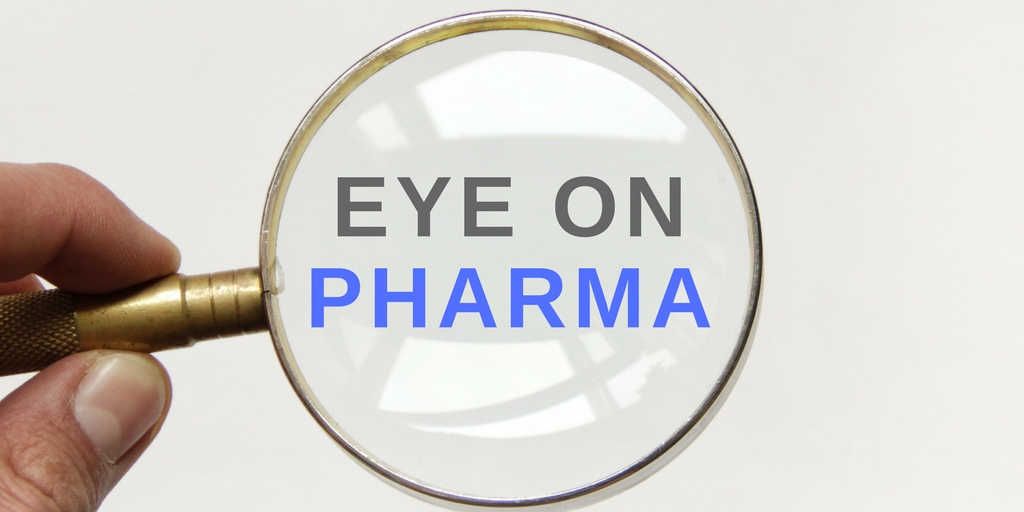- Bone Health
- Immunology
- Hematology
- Respiratory
- Dermatology
- Diabetes
- Gastroenterology
- Neurology
- Oncology
- Ophthalmology
- Rare Disease
- Rheumatology
Eye on Pharma: Simlandi US Launch; Ranibizumab Partnership; Expanded Access for Adalimumab Biosimilars
Alvotech and Teva have launched Simlandi in the US; Xbrane Biopharma and STADA Arzneimitel partner with Valorum Biologics to bring a ranibizumab biosimilar to the US; Boehringer Ingelheim and Celltrion take steps to expand access to their respective adalimumab biosimilars.
Alvotech and Teva have launched Simlandi in the US; Xbrane Biopharma and STADA Arzneimitel partner with Valorum Biologics to bring a ranibizumab biosimilar to the US; Boehringer Ingelheim and Celltrion take steps to expand access to their respective adalimumab biosimilars.

Simlandi Launches in the US
Teva Pharmaceuticals and Alvotech have announced the US launch of Simlandi (adalimumab-ryvk) injection, an interchangeable biosimilar to Humira (adalimumab), for multiple conditions including rheumatoid arthritis and Crohn disease. Simlandi was the first high-concentration, citrate-free adalimumab biosimilar to Humira be approved with interchangeability status.
Teva, focusing on market access, highlighted the cost-saving potential of biosimilars and aims to launch 6 more by 2027. Alvotech, responsible for development and manufacturing of Simlandi, emphasized the importance of cost-effective biosimilars in reducing health care costs. The strategic partnership between the companies began in 2020 and includes exclusive commercialization of 7 biosimilar candidates. Simlandi is the first product from this collaboration, followed by Selarsdi (ustekinumab-aekn) approved by the FDA in April 2024.
“We look forward to increasing the availability of cost-effective quality biosimilars in the US, as they can be an important contributor to reduced inflationary pressure for health care providers and patients,” said Anil Okay, chief commercial officer of Alvotech.
New Partnership to Bring a Ranibizumab Biosimilar to Americans
Xbrane Biopharma and STADA Arzneimittel have entered an exclusive licensing agreement with Valorum Biologics for their ranibizumab biosimilar candidate. Xbrane and STADA will handle regulatory approval and manufacturing, respectively, while Valorum will manage sales and marketing in the US.
“Success of this launch will be as important and defining for Valorum as for us, and hence we are convinced the product will get the full attention it requires. Further, we are convinced that Valorum with its unparalleled team with vast experience and network across the US will be able to commercialize biosimilars, including Lucamzi , highly effectively,” said Martin Åmark, CEO of Xbrane Biopharma, in a statement.
Valorum, founded by industry veterans, aims to improve biosimilar access and reduce health care costs. The ranibizumab candidate, used to treat retinal disorders, is already marketed by STADA in Europe under the Ximluci brand.
If approved by the FDA, it will provide a cost-efficient alternative to existing treatments. Valorum will pay up to $45 million in license fees, with royalties shared between Xbrane and STADA, and Xbrane will supply the product at a marked-up cost.
Two Companies Make Efforts to Expand Access to Adalimumab Biosimilars
Celltrion and Boehringer Ingelheim took different steps to increase access to their respective adalimumab biosimilars.
Celltrion USA announced that an unbranded version of its high-concentration, citrate-free biosimilar to Humira, adalimumab-aaty (Yuflyma), is now available at an 85% discount to Humira's wholesale acquisition cost (WAC). Branded Yuflyma, which launched in July 2023, is offered at a 5% discount to Humira's WAC.
Boehringer Ingelheim partnered with Quallent Pharmaceuticals to expand access to citrate-free adalimumab-adbm (Cyltezo) in the US. Boehringer would manufacture the biosimilar, and Quallent would distribute it, offering both high- and low-concentration formulations. The agreement aims to reduce costs and increase availability for patients with chronic inflammatory diseases. Quallent also planned a co-pay assistance program to improve access to the product.
Newsletter
Where clinical, regulatory, and economic perspectives converge—sign up for Center for Biosimilars® emails to get expert insights on emerging treatment paradigms, biosimilar policy, and real-world outcomes that shape patient care.
